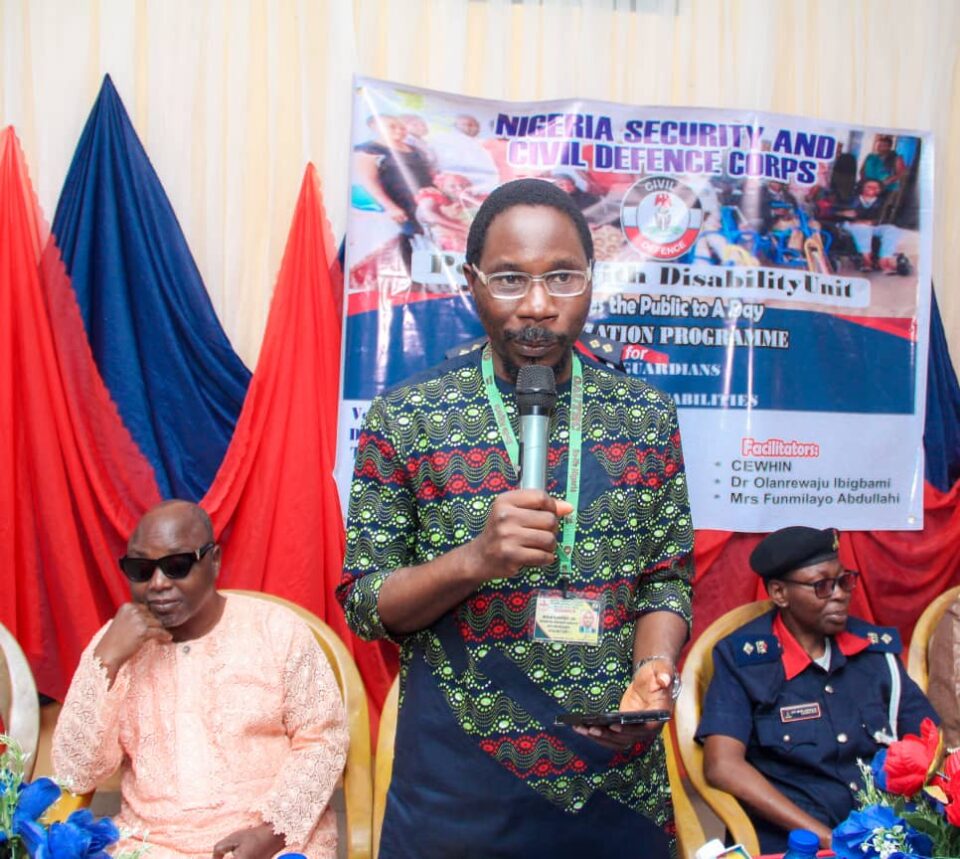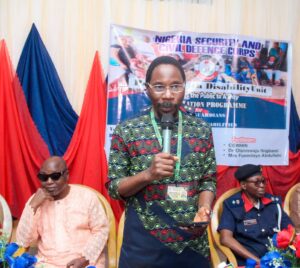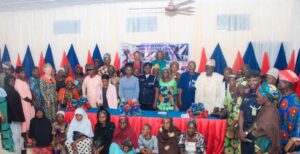PWD Welfare: Take Your Wards For Occupational Therapist Assessment – NSCDC Tells Guardians
…commends them on taking care of their children…
By Sola Aderinto,
Osun Command of the Nigeria Security and Civil Defence Corp, NSCDC has called on parents and guardians of Persons with Disability in the state to take their wards for Occupational Therapist Assessment, to know the level of disability status and measures to take medically in the interest of the special needs children.
The disclosure was made by Dr Olanrewaju Ibigbami at the NSCDC one day sensitisation programme with parents and guardians of children category of persons with disability, held at the Cooperative Hall of the Command barrack at oke Ayepe, Osogbo.
Dr Ibigbami elucidating the benefits of the assessment, commended the guardians for their steadfastness in taking care of their PWD children, adding that from his medical experience, the detrimental impact of ignorance and negligence among parents regarding their children’s health is not good.
He urged parents to promptly seek appropriate medical attention whenever they notice health issues, and to stop concealing their children’s disabilities, adding that understanding their children’s strengths and weaknesses will help them to select the right educational institutions, for the needed education.
In his address of welcome, the Osun NSCDC Commandant, Dr. Adaralewa Akintayo expressed gratitude to the parents and guardians, and acknowledged the dedication and love they have for their children.
Dr. Akintayo emphasized the importance of community engagement in improving the lives of children with disabilities and encouraged continuous support for these children, while assuring them of moral support.
Also speaking, Miss Esther Osho of the Center for Women Health Development, emphasised the critical role of family and community in supporting children with disabilities, and she encouraged parents to accept their children unconditionally and to provide a nurturing environment that fosters growth.
Reiterating that PWD children are gifted, she cited examples of successful individuals with disabilities, and inspired the parents not to be shy, and to advocate for their children’s rights and ensure they have access to quality education.
In his words, the Osun state Chairman, Joint Association of Persons with Disability, Mr. Stephen Oluwafemi, sharing his personal story to motivate the guardians, highlighted the resilience and potential of individuals with disabilities, and he expressed appreciation for the efforts of parents, reassuring them that their hard work is invaluable.
In her goodwill message, Mrs. Abdullahi Funmilayo of Osun JONAPWD, talked about legal framework and policies to protect the rights of persons with disabilities, adding that both international and Nigerian laws, including the Discrimination Against Persons with Disabilities (Prohibition) Act of 2018, are legal protections, and she noted the Osun state Governor’s efforts in supporting PWDs, particularly regarding data collection for better resource allocation.
In their separate goodwill messages, Mr. Sam Aderibigbe SSA to the Governor, and Mrs. Alabi Arinola Ministry of Sport and Special Needs, reiterated the importance of love and support for children with disabilities.
The duo reiterated the government’s commitment to improving the lives of PWDs in the state, and the need for collaborative efforts between government and NGOs to support PWDs, and urged parents to be patient and optimistic, assuring them that the society is gradually adapting to meet the needs of children with disabilities.
The NSCDC PWD Desk Officer Olalero Rita, in her vote of thanks appreciated everyone and reassured parents that NSCDC officers will support PWDs effectively and act as advocates within the community.
The primary goal of the program which was to empower parents with knowledge on how embrace their Persons with Disability children and to give better support for their disabled children, engaged the parents and guardians to speak about their challenges, and brought together stakeholders which include: healthcare professionals, legal experts, and representatives from various Community Based and Civil Society organizations advocating for persons with disabilities (PWDs).




